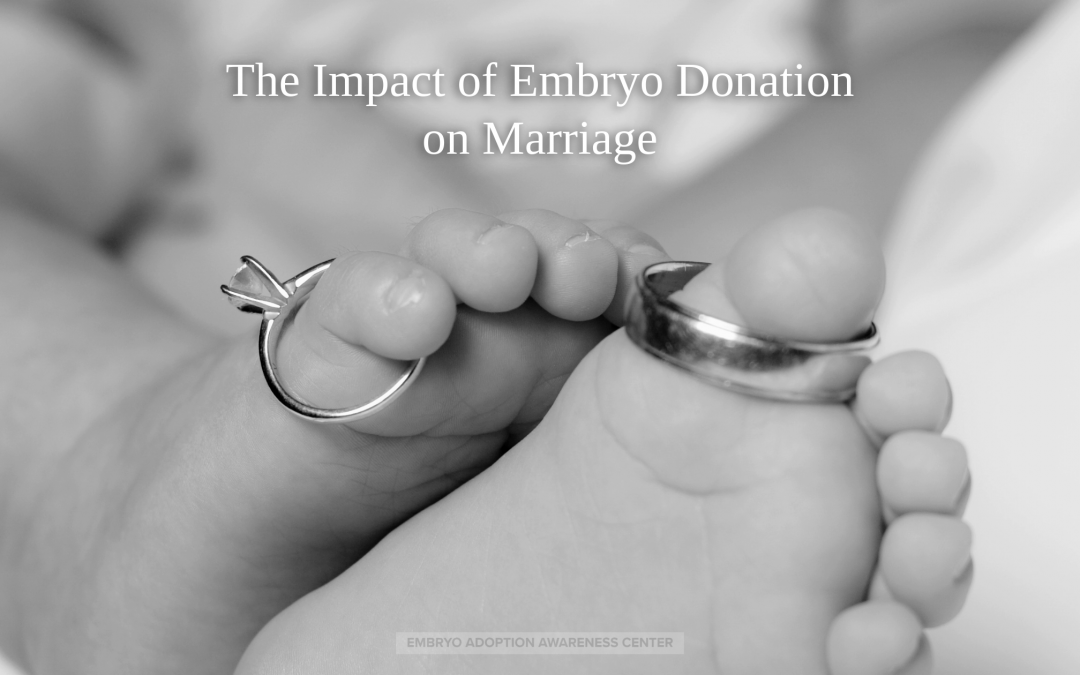Embryo donation is a compassionate choice that brings hope to those yearning to build a family. While this selfless act of giving the gift of parenthood to others is admirable, we do need to recognize that embryo donation can have a profound impact on the relationships we have with others. Especially marital relationships.
Below are six ways donating embryos can have emotional and relational effects on a marriage.
1. Shared Decision-Making
The decision to donate embryos is a deeply personal—one that requires open communication and consensus between partners. Couples may find themselves navigating through complex emotions, ethical considerations, and discussions about the future. It is essential to ensure that both partners are on the same page and share a common understanding of the implications of embryo donation for their family.
2. Emotional Rollercoaster
Embryo donation often involves letting go of the potential for more biological children and accepting the idea of those children growing up in someone else’s family. This process can trigger a wide range of emotions, including grief, loss, and guilt. However, it can also lead to feelings of relief and peace. Couples may experience these emotions individually, and it is vital to acknowledge and validate each other’s feelings.
3. Impact on Identity & Parenthood
Donating embryos can challenge traditional notions of parenthood and identity. Couples may grapple with questions such as:
What does it mean to be a parent?
How do we define our family?
These existential inquiries can lead to profound and insightful discussions about the essence of family and the unique nature of love and connection.
4. Nurturing Empathy and Compassion
Embryo donation is an act of compassion towards others facing infertility. This can foster empathy within the couple, deepening their emotional connection and reinforcing the importance of supporting one another. The shared experience of helping others may strengthen the marital bond.
5. Coping with External Pressures
Embryo donation may bring about external opinions and judgments from friends and family. Couples must navigate these external pressures as a unit, relying on their strong foundation of trust and communication. It is necessary to prioritize each other’s well-being and focus on the shared values that ultimately led to the decision to donate the remaining embryos.
6. Post-Donation Reflections
After the donation process is complete, couples may experience a period of reflection. Taking time to process and reflect upon the emotional journey can be constructive and valuable. In addition, individual or couples therapy (before, during, or after the donation) is often beneficial. Open communication and emotional support are key during this phase as couples redefine their sense of purpose and direction.
Ultimately, embryo donation is a profound and selfless choice that can bring about significant changes in a marriage.
While it may present more than a few challenges, it also has the potential to strengthen the emotional connection between partners and reaffirm the shared values that brought them together in the first place. By navigating the emotional terrain with empathy, open communication, and mutual support, couples can emerge from the experience with a deeper understanding of themselves and each other.
Want to learn more about donating remaining embryos? Visit EmbryoAdoption.org.


Recent Comments